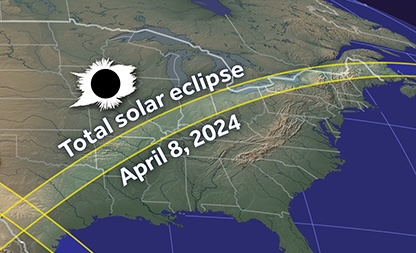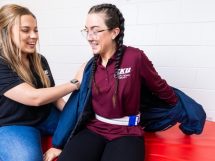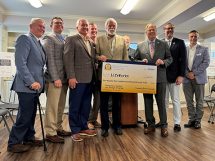 LOUISVILLE — It is almost here! A total solar eclipse, so close to home. Excitement is building and people across the country are counting down the days in anticipation of viewing the celestial event on April 8.
LOUISVILLE — It is almost here! A total solar eclipse, so close to home. Excitement is building and people across the country are counting down the days in anticipation of viewing the celestial event on April 8.
The last total solar eclipse the United States experienced was on Aug. 21, 2017. A total solar eclipse is when the moon passes between planet earth and the sun, causing the sun’s light to be either fully or partially blocked – depending on location. As you are making your plans on where to view the event, a local retina expert is stressing the importance of protecting your eyes before looking up toward the sky.
Dr. Inder Singal is the interim medical director at the Louisville Metro Department of Public Health and Wellness (LMPHW) and has also been serving Louisville Metro as a retina specialist since 2003.
“Sun gazing is always bad for the eyes, eclipse or not,” said Dr. Singal. “Less than one minute of direct sunlight exposure can cause permanent retina damage and loss of central vision. During the eclipse when the moon moves over the sun, our eyes dilate, exposing them to far more light as soon as the moon moves away. Sun gazing injury is a photo-oxidative damage to the outer layers of the retina. Meaning it can cause serious inflammation of the retina and can lead to chronic visual complications. This is why protecting your eyes is incredibly important.”
When viewing a total or partial solar eclipse, always look through safe solar viewing glasses, aka “eclipse glasses”. Eclipse glasses are not regular sunglasses. They are much darker and should comply with the International Organization for Standardization (ISO) standard for solar viewers. Looking through a camera lens, telescope or binoculars does not protect your eyes without a special solar filter.
Pets are equally susceptible to eye damage, so you should consider keeping them inside.
You can find eclipse glasses at stores and online for under $2. To learn more about eclipse eye safety visit NASA.gov.



















